Have you ever really thought about how vital it is to communicate effectively?
We live in a social and interactive world where success depends on our ability to cooperate with others—at home, school, work, and everywhere in between. But how can you improve your communication skills? This essay answers that question.
- ❗ Importance of communication
- ❓ What is communication?
- 🔧 Functions of communication
- 💬 Types of communication
- 🆎 Poor vs successful communication
- ✏ Communication tips
- 👣 Steps to improve your communication skills
- 📊 The 7 Cs of successful communication
- 📚 Books on communication skills
- 😉 Traits of successful communication
The art of communication is essential for students. Think about how often you interact with friends, parents, neighbors, colleagues, or even strangers. Especially in college and university, we encounter many people and must adapt our communication styles to make a good impression or achieve the desired results. We write emails, facilitate meetings, participate in conference calls, compose papers and reports, give presentations, debate with friends and classmates, and much more.
This post on how to improve communication skills is crafted for students and anyone interested in the topic.
From it, you will discover:
- Why communication is important
- How to improve communication skills
- How to make the most of oral communication
- How to lead a conversation
- Which literature is worth studying to learn more
❗ Importance of communication
That means that you should make sure to communicate in the most effective way you can. Strong communication skills can boost your productivity, help you succeed in your career, and make you a leader among your peers. It’s common knowledge that the best leaders are excellent and highly effective communicators.
So, the question is…
How can you improve your communicative skills to have more influence, build a happy and successful career, and form better relationships with your friends and family?
Let’s break this down in detail.
❓ What is communication?
Communication is the act of conveying meaning to another person using mutually understood signs and semiotic rules.
The communication process consists of several components:
- The sender is the person who sends the message.
- The message is the information to be conveyed.
- The channel of communication is the manner in which the message is sent: speaking, writing, video, audio, emails, text messages, body language, etc.
- The receiver is the person who receives the message and sends a reply.
There are always two parts to the process of communication: sending and receiving.
The process of communication can be either verbal or non-verbal depending on communicational channels. Verbal communication can be oral or written, while non-verbal communication uses facial expressions, body language, visuals diagrams, or pictures.
🔧 Functions of communication
There are four main functions of communication:
- Control (concerning specific spheres of relations between the sender and receiver)
- Motivation (encouraging both sides)
- Emotional expression (exchanging emotions and interacting)
- Information (sharing specific information)
Knowing these functions is extremely important. But to achieve successful results in communication, we have to consider the various types of communication.
💬 Types of communication
Language communication can be classified into two common and popular types: interpersonal and business-related.
Interpersonal communication
Interpersonal communication is the exchange of words, signs, and body language signals between people. It can be done in several ways:
- One sender – one receiver (a private talk between two people, the sender and the receiver)
- One sender – many receivers (the average university lecture or a meeting with one speaker who is the sender)
- Many senders – one receiver (a seminar or an examination where each student has a word)
- Many senders – many receivers (a conference where students and teachers are both senders and receivers, all sharing their findings on a topic)

Business communication
The parties exchanging information in business communication may include customers, employees, bosses, companies, and departments.
Keep in mind that in business communication, the parties (the sender and the receiver) often use their own type of shared language called jargon. For this reason, business communication may not be as authentic as other types of interpersonal communication.
Want to know a bit more about effective communication? Keep reading!
Here’s an interesting fact:
In a normal conversation, most people only take in about 25% of what they are told, regardless of the means of communication. So if you want to be sure that people understand your meaning, it is absolutely crucial to develop effective communication skills.
How can you make your meaning clearer and help the receiver better understand your information? You should be attentive and concentrate on the topic of your message. Try to remove distractions. It is useful to write the information down. Always ask clarifying questions if you are unsure. Do not interrupt unless necessary.
If you want to learn more about effective communication skills for your resume and workplace, you can do so on this Zety page.
🆎 Poor vs successful communication
You already know what communication is. Now you might be thinking…
How can I achieve effective communication? What is it like?
These are vital questions.
So let’s compare poor and effective communication styles. What should we do to achieve positive results in any conversation?
✏️ Communication tips
Use these simple techniques for effective communication.
- Be authentic.
It is never a good idea to pretend to be a person who you are not.
Try to be genuine in business and personal life, and people will like you. Showing your true values, preferences, and thoughts encourages effective communication.
Think for a minute, what’s special about you? What details should a person know to get you? Then, use this knowledge to make relationships stronger.
- Be positive or neutral towards the receiver.
The sender should not attack the receiver.
Often, even when you don’t mean anything negative toward your opponent, they may feel uncomfortable during the discussion. Especially if you discuss a topic that is important to them.
What makes a good communicator?
Empathy and the ability to use it. So, don’t miss your chance. Analyze your opponent’s feelings and behavior when speaking and learn to use neutral phrases.
Express your feelings more. Instead of attacking the subject with accusations, describe what makes you sad or angry. However, if your tempers don’t allow you to build a calm conversation, change the subject by using the phrase “Let’s take a break until…” The last part could be anything from “…we get some coffee” to “…we get the book from that zoologist so I can prove to you a rhino horn isn’t bone but hair.”
- Be open.
As the receiver, listen carefully to the sender. Remember one phrase: “So, what you’re saying is…” It not only shows your interpretation of the speaking partner’s thoughts but is also a sign of a good listener.
Be curious about other people, their ideas, and ways to find out their stories. This isn’t a strategy but a significant feature of interpersonal communication.
Don’t judge people or the things they like. On the contrary, try to love the stuff they’re sharing with you. When you learn that different points of view, no matter how strange they are, can all be fantastic, you become kinder to people.
- Pay attention to the conversation.
Don’t be distracted either as the sender or the receiver. Even if you believe in the benefits of multi-tasking, don’t let yourself use a smartphone or write e-mails while communicating with others.
Practice eye contact to better understand your partner and show them you’re interested in the conversation. While developing verbal skills, don’t forget to pay attention to non-verbal ones. For example, you should sit or stand straight, keep hands out of your pockets, smile, nod your head, and so on.
- Make your message clear and direct.
Garbled or ambiguous messages make your communication rather poor. Enhance your structuring skills—try to express your thoughts as briefly as possible and only when your message is perfectly clear, add details if you need some.
When you strengthen your critical thinking abilities, you become a powerful opponent in a dispute and an excellent teacher who knows how to explain and prove facts.
A lack of concentration never leads to successful communication.
Focus on one idea at a time to gain the attention of the person you’re talking to.
- Tell the receiver directly what you want out of the conversation.
Avoid any hidden persuasion or attempts to control the receiver. Unless you’re some kind of hypnosis master, your manipulative tricks can be easily discovered. And being an unpleasant person who plays with people’s emotions isn’t the best development plan for good communication skills.
If you need someone’s help, don’t start the conversation with ambiguous notes or a detailed speech on how many times you gave them a hand when they were in trouble.
Just ask them.

- Keep your mind clear and open to other points of view.
There is no successful method to improve a dispute where no one is open to new thoughts. Unless one of you becomes ready for a change, communication will not be successful.
- Be emotional, but not over-emotional.
Have control over your actions, words, and even thoughts. When adding emotions, whether at your workplace or with friends, you become more genuine and people start trusting you. But your social life becomes worse if you become too angry or depressing, or, even, too happy.
- Provide an opportunity for suggestions and criticism.
Always give time for the receiver to reply to your message. Communication goals vary strongly, but it’s important to get feedback.
Without replies, the conversation turns into a monologue. And why would you learn communication strategies, if you’re going to give a speech rather than have a conversation?
In effective communication, you need to express your ideas and points of view clearly and confidently. You should adapt your content and style to your audience.
👣 Steps to improve your communication skills
To improve your communication skills at work, you should take the following three steps.
- Make other people feel valued.
Don’t talk about yourself. Ask questions and listen to their replies. That will make other people feel special. - Make your communication relevant.
Do you want other people to listen to you? Add value to what you say. The main thing is to give your audience a reason to listen to your message. So, explain the benefit, ask some questions, or tell a story. You may also visit an essay database to see samples of how people communicate their thoughts and ideas. - Make other people feel human.
Speak in casual, non-formal words if you want to sound authentic. Use your natural voice.
To get the whole picture of the communication process, let’s take a look at poor, non-effective communication.
What does poor communication look like?
- The received message is ambiguous or unclear, is difficult to understand, and can lead to confusion.
- The information is over the top or excessive. The listener loses concentration.
What are the consequences of poor communication? Frustration, squandered time, eroding loyalty, and even loss of hope for the success of the conversation. Non-effective communication leads to conflicts, mistakes, and poor relations between employees. No one wants to waste time and effort.
Effective communication is an absolutely crucial skill, so learning how to improve your communication skills will benefit you in many ways.
📊 The 7 Cs of successful communication
So, how can you avoid communication failure in speech and in writing and significantly improve your productivity?
Fortunately, this isn’t as hard as you might think!
Let me explain…
You have to make sure that your communication is clear and effective. In other words, you should be certain that your audience understands the meaning of your message.
Remember the 7 Cs of Communication! Using the 7 Cs, you can be absolutely sure that your audience gets your message.
According to the 7 Cs, communication should be:
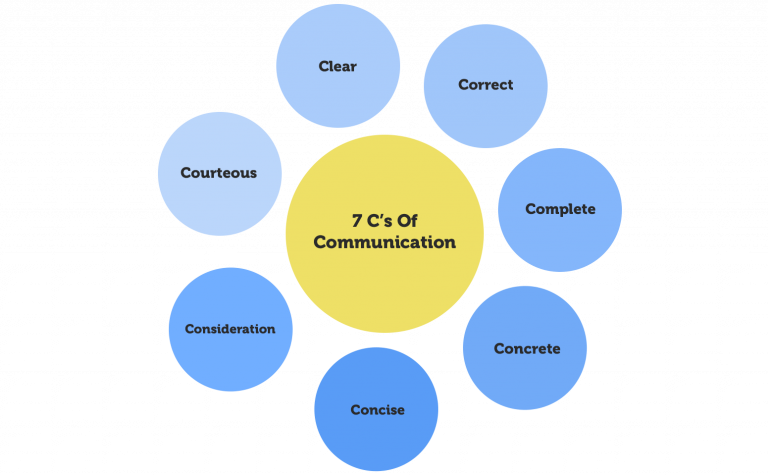
Let’s take a look at a more detailed description of each C.
Clear
Being clear about your goal or message while writing or speaking means understanding the purpose of communication. If the sender is not sure, the receiver won’t be sure either. In order to be clear, the number of ideas in each logical unit should be minimal. The receiver should not have to read between the lines or make assumptions to understand your message.
Concise
Being concise means sticking to the point and keeping the message brief. Long talks without pauses will tire the receiver. You should avoid unnecessary phrases and sentences. If you keep repeating the same thing several times and in different ways, you won’t make good conversation either.
Concrete
Being concrete in your speech or writing means sending the receiver a clear picture of the message so that he or she gets all details and facts. Such a laser-like focus will bring you closer to successful communication
Correct
Correct communication is error-free. Be sure that your message fits the audience, especially their level of education. Don’t use tricky, rare, outdated, or overly formal or technical words that do not fit your audience. In written communication, be sure there are no misprints, spelling mistakes, or grammatical errors.
Coherent
Being coherent means being logical. Your ideas should be relevant to your topic. Always prove your ideas with necessary details and appropriate examples.
Complete
To be complete, send the receiver everything he or she needs at once. The audience should get only the most relevant information, such as names, dates, times, and locations. Give your audience all the information they need to take action if necessary.
Courteous
Being courteous means communicating in an honest, open, and friendly manner without hidden insults or aggressive tones. Keep in mind the receiver’s point of view. You should also be empathetic to his or her needs
Other variations of the 7 Cs of Communication include such attributes as credibility and creativity.
📚 Books on communication skills
To manage social communication better, you’re encouraged to learn from books. There are not only those that are made “for dummies.” So feel free to choose one even if you’re an experienced speaker.
1. Improve Your Social Skills by Daniel Wendler
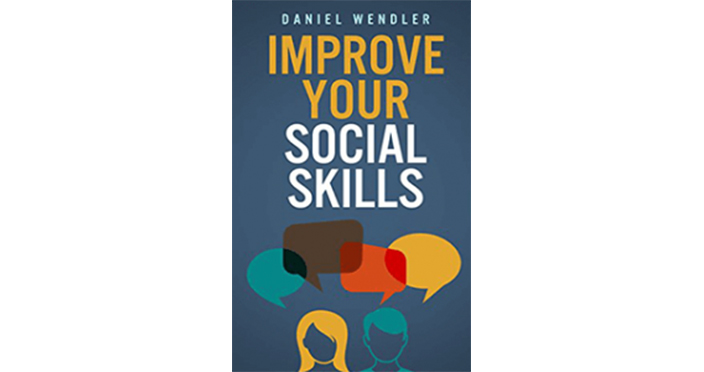
This book is useful for professional communication, cementing relationships with friends, or dating. Learn how to behave in everyday connections at work and learn many tips for couples.
2. How to Talk to Anyone: 92 Little Tricks for Big Success in Relationships by Leil Lowndes
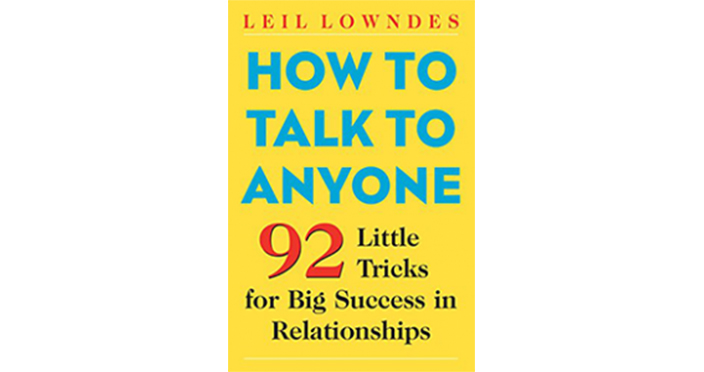
Does your small talk sound like a set of interview questions? Can’t charm anyone with your smile? Want to discover how to know more about your new acquaintance without revealing too much about yourself?
If you want to know the answer, this book is a perfect choice. The author explains significant topics on how to use your body language, answer and ask questions, make friends, and so on.
3. Talk Like TED by Carmine Gallo
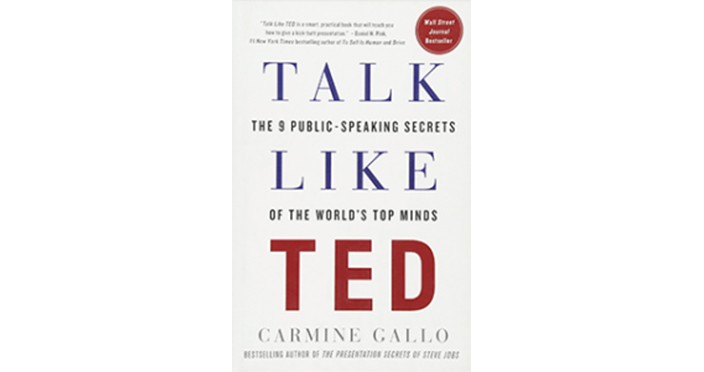
If you’re looking for a perfect example of giving a speech, you must watch at least one TED talk. This book can serve as training material for everyone who’s going to give a presentation on the job, at a seminar, or any event.
Learn nine important tips and become a better speaker.
4. How to Deliver a Great TED Talk: Presentation Secrets of the World’s Best Speakers by Akash Karia

Another book on how to practice presentations and improve your performance in speaking. Learn to make simple but powerful plans, provoke curiosity, and create a WOW-effect.
Watch TED on YouTube, investigate this handbook, and train on new communication techniques.
5. Verbal Judo: The Gentle Art of Persuasion, Updated Edition by George Thompson

Become a perfect speaking partner with the help of empathy and social interaction tips. Understanding your weaknesses, taboos during small talks, and active listening, you improve your communication skills a lot.
6. Thanks for the Feedback: The Science and Art of Receiving Feedback Well by Douglas Stone

This book covers the knowledge on how to develop a strong relationship through empathy and understanding. Learn psychological aspects that block positive feedback and how to beat them. Use your positive qualities and temperament to make people like you without any manipulative actions.
7. What Every BODY is Saying: An Ex-FBI Agent’s Guide to Speed-Reading People by Joe Navarro
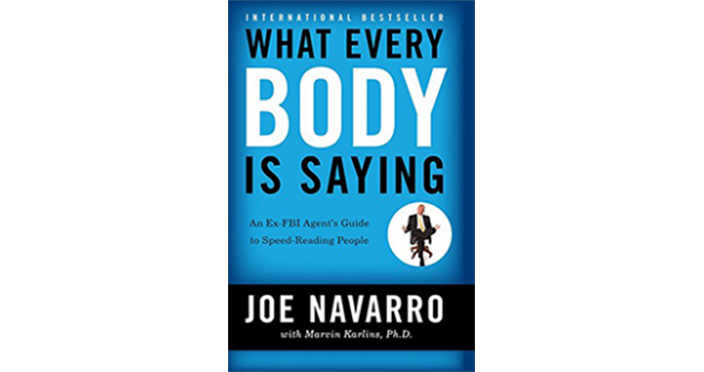
The author of this book is sure of one thing: actions speak louder than words. To demonstrate this idea, he provides facts and statistics on various aspects of body language.
When you finish this book, you’ll know the strengths of the human body. That makes conversations and disputes much easier.
8. Movie Quotes for All Occasions: Unforgettable Lines for Life’s Biggest Moments by James Sheibli

Tired of psychological theory? Then, try out something fun.
In this book, you’ll see quotes for any occasion—weddings, graduation, work, activism, and so on.
Of course, we don’t advise you to use them every time. But reading the quotes can inspire you when writing your own speech.
😉 Traits of successful communication
We all communicate every day. The better we organize the communication process, the more credibility we’ll have with our classmates, our teachers, and the surrounding world. Always keep in mind the traits of successful communication: clear, concise, concrete, correct, coherent, complete, and courteous.
The ability to communicate effectively is a must if you want to succeed in your education, work, and relationships. I hope that these tips will help you to develop more effective communication skills.
Remember:
Conversation is a skill and just like any skill, there is value to learning it. Improving your communication skills will help you build better contacts, friendships, and romantic relationships.




I am require to learn English communication skills
Thanks for the awesome feedback, Tahir!
Nice! and thanks for sharing this information, very helpful, I really like this article, good job.
Thank you for your attention. It means so much for us!
Thanks for the tips
Need more communication tips
Thank you for the feedback!
Nice essay
I like how you interpret the theme for communication
Thank you, Kamlesh!